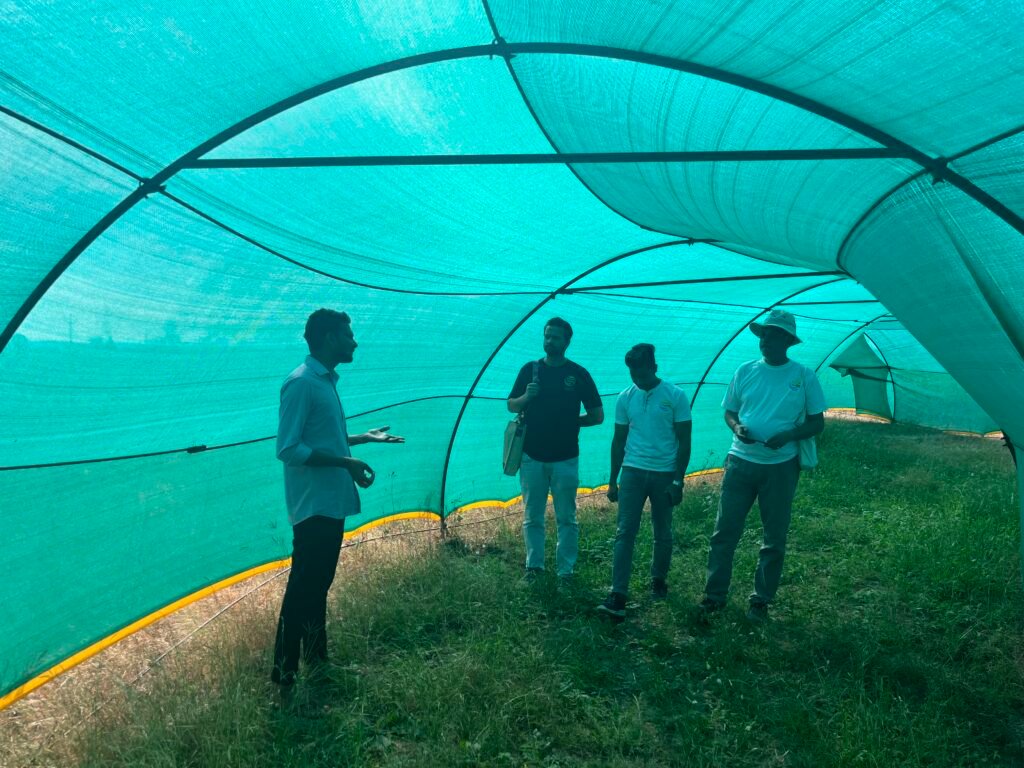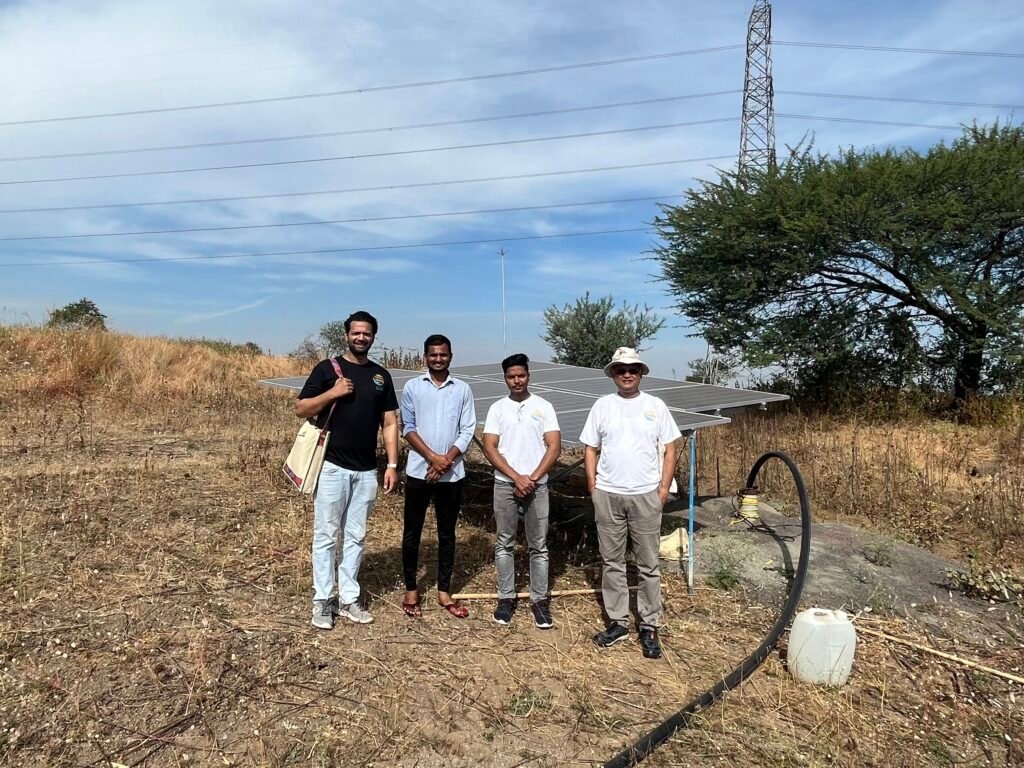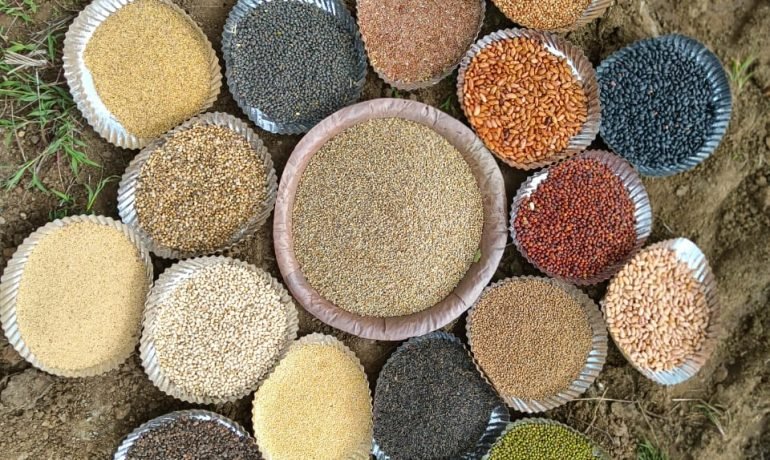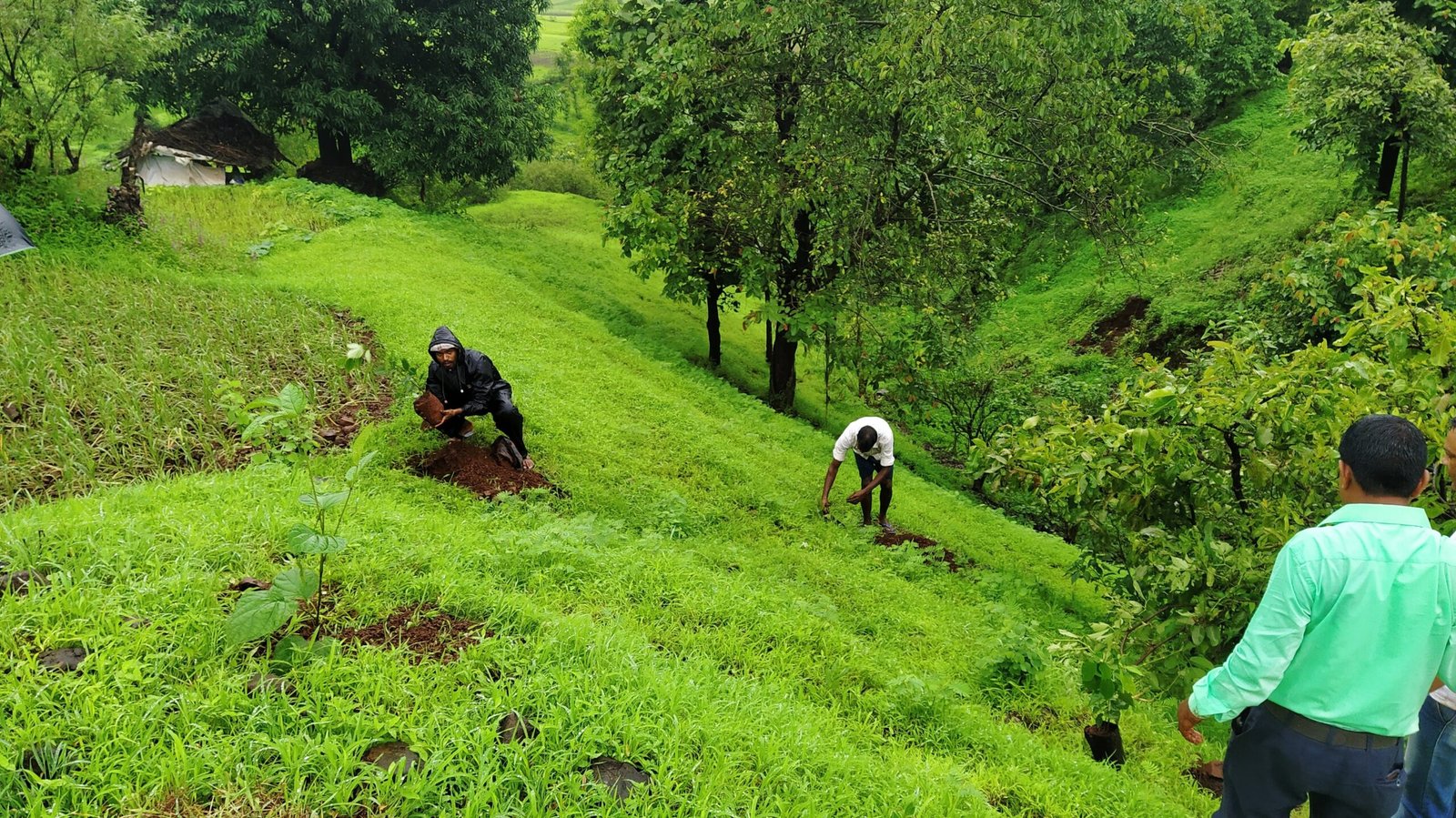
Agro Rangers
REGENERATIVE ORGANIC FARMING TRAINING CENTER
FOUNDER/ PROJECT LEAD
Siddhesh Sakore
PROJECT LOCATION
7 acres farm in Dhamari village, Pabal – Shikrapur Road, Shirur, Pune 412403 – Dhamari is a village in Maharashtra State’s Pune District’s Shirur Taluka. It is from the Paschim or Desh area of Maharashtra. It is a part of Pune Division. It is located 44 kilometres north of Pune’s district headquarters and 155 km from Mumbai, the state capital. The total population of Dhamari Village is 3909, and there are 817 homes. The population of females is 49.2%. Female literacy rates in the village are 31.6% while the overall literacy rate is 72.0%.

PROJECT GOAL
The project envisions building the soil health by creating ambassadors in regenerative organic farming who will be empowered to drive the movement of changing the mindset of farmers and consumers toward sustainable food production.
PROJECT INTRODUCTION
Registered under society registration act 1860, Agro Rangers is a project committed to the adoption of regenerative organic farming practices in India’s agricultural sector. Based in Rajgurunagar and Shirur tehsil of Pune district, Maharashtra, India; Agro rangers focus on rejuvenating some of India’s worst affected agricultural lands and restoring organic carbon to cultivate land under full organic potential. The word Agro Rangers means protector of farming. Through regenerative organic farming practices, we protect agriculture from harmful chemical practices. Agro Rangers protects the environment by preventing soil and water pollution from destructive industrial chemical farming practices. Further, it is dedicated to protecting farmers from the vicious debt cycle of farming. It helps to create health-centred communities by growing organic food.
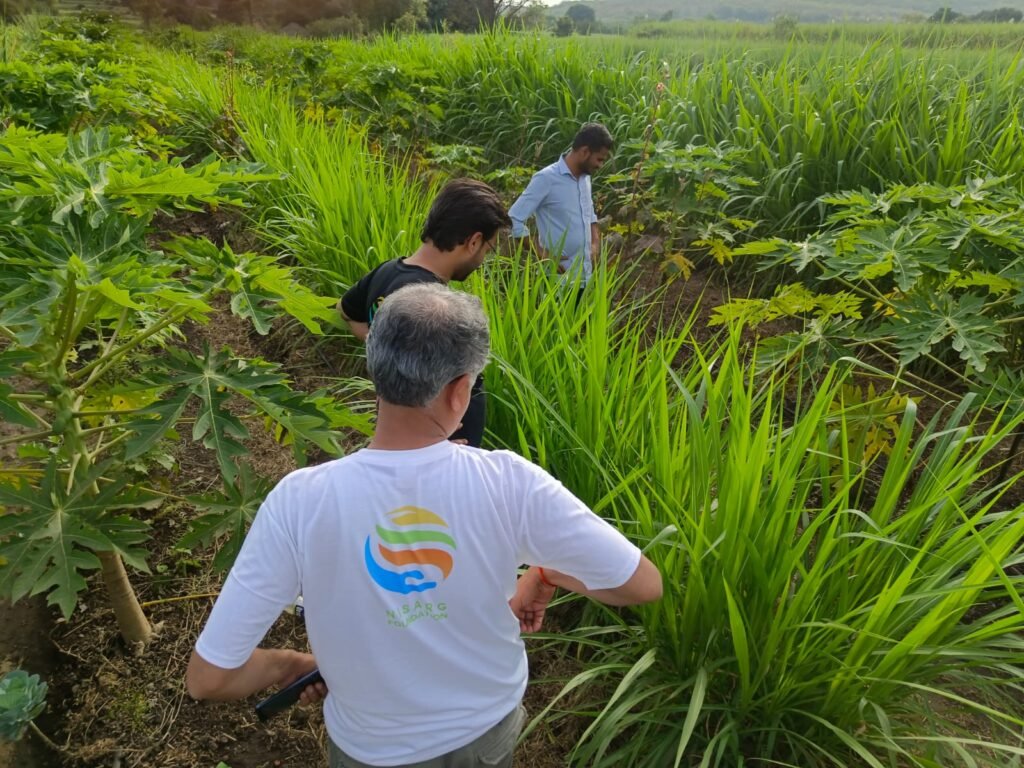
DETAILS OF THE PROJECT
In 2016, the average age of an Indian farmer was 50.1 years. This is worrying because the next generation of the current farmers is quitting the profession. According to the Census of India, every day 2,000 farmers give up farming and every 30 minutes one farmer commit suicide. 50 years ago, farmers in the village of Kendur (60 km from Pune) earned a decent livelihood. The income was enough due to high yields. Nowadays, soil depletion through the overuse of pesticides has decreased crop production significantly. In order to prove the root causes of the problem, we tested the soil of every farm in our village, as well as farms of 10 other villages under the government’s Soil Health Mission. The result was shocking: more than 90% of soil is nitrogen deficient, with an organic carbon of 0.6% (>2% is considered normal). Over the years, the topsoil has degraded, resulting in much less crop yield. Kendur is a drought prone village and has an average annual rainfall of 250 mm-350 mm. Industrial farming methods are the main cause of soil degradation. Unaware of the correct dosage and ill effects of chemical fertilizers and pesticides, farmers unintentionally depleted the quality of their soil over a period of 50 years. With industrial farming methods, farmers are continuously forced to use specific chemical fertilizers, chemical pesticides, and GMO seeds. These methods have affected the health of people, by polluting the soil and groundwater. Biodiversity has also been hugely affected as these farming inputs continue to decimate insect, bird, and microbe populations. Microbe deficient soil cannot hold water. In several areas, even during rainy seasons, agriculture is suffering from drought. All these issues have resulted in loss of livelihood and poverty.
Most children of farmers don’t have opportunities to get an education. Because of poor economic prospects, becoming a farmer is not popular among youth. The new generation prefers industrial jobs instead of farming and this results in less innovation and unsustainability in the farming sector. Opportunities need to be in place to provide future prospects for young generations so that the farming profession becomes attractive and respectable again. Farmers need to be educated about the negative impact of industrial farming and unlearn about the use of chemical fertilizers and pesticides. They need to be financially secure through alternative farming solutions. The image towards farmers in our society needs a change. There is an urgent need for more Integrated Regenerative Organic Farming solutions to make organic farming profitable and sustainable.
Through the introduction of regenerative organic farming, the project will restore the topsoil and over time, the groundwater level will be rejuvenated too. Agro Rangers will be experts in organic farming, and they will assure that no more harmful chemical fertilizers and nor more pesticides are used on their farms. These Agro Rangers will be brand ambassadors of our organization, so they will help us to create awareness among other industrial farmers. The goal is to make them independent of our organization and will run their regenerative organic farms in a sustainable way.
To make Agro Rangers brand ambassadors, we want to create a model farm that will help us to convince farmers and consumers. We can show them the benefits of regenerative organic farming. This model farm will be used to train farmers and youngsters in different aspects of regenerative organic farming like rainwater harvesting, soil health, composting, dry farming techniques, organic fertilizers and pesticide making, intercropping and mixed cropping model, contour farming, conservation of native seed bank, agroforestry, etc. We believe that regenerative organic farming practices will build soil health by sequestering more atmospheric carbon. Soil has potential to store atmospheric carbon 4 times more than plants. Therefore, we are creating awareness amongst farmers and training them into regenerative organic farming practices to rejuvenate our soil and increases soil organic carbon by this methodology.
The regenerative organic farm will include the following elements to become as a training centre:
- Rainwater harvesting system to recharge groundwater.
- Agroforestry with dry farming techniques for better climate.
- Compost factory to build soil health and provide organic inputs to farmers.
- Eco-friendly training space with composting toilets for trainings and workshops.
- Intercropping farming with drought resistant crop varieties.
- Farm Pond to collect harvested rainwater from farm and contours.
- Organic nursery to prepare native forest and fruit plants saplings.
- Seed bank to conserve indigenous native and local seeds.
- Kitchen Garden model setup for nutritional security
- Animal husbandry unit to make this training centre sustainable.
- Value addition and forest based processed food unit.
- Vegetable and fruit collection centre for marketing model to make farmer sustainable.
- Native Forest on barren land with wind breaker trees and bio fencing trees.
- Contour farming model to conserve soil.
- Eco-friendly mud domes to stay for volunteers and staff.
SOP
- Farm ponds of size 20 m*20 m*3 m will get constructed to collect rainwater up to 8,00,000 litres.
- A contour trench will get constructed on 2 acres of slope land to recharge groundwater and collect rainwater.
- Bore well get dig of 100 m deep to irrigate farm through the drip irrigation system.
Read More
- Minimum 1000 fruit saplings will get planted in dry agroforestry.
- An eco-friendly hut of size 5 m*5 m will get constructed to conduct training and workshops.
- Two composting toilets will get constructed to use as organic input sources.
- 7 acres of land will get restored into fertile land through regenerative organic farming practices.
- A minimum of 50 farmers and youths will get the train in regenerative organic farming methodologies while building this farm.
- Minimum 10 training and workshop programs will get conducted for farmers on this regenerative farm after completion of all elements throughout the year.
- More than 100 farmers, youths, and women farmers will get trained in various aspects of regenerative organic farming models in one year.
- In one year of the ambassador’s fellowship program, 20 farmers will be trained.
PROJECT IMPACT
- Environmental pollution like water pollution, air pollution, and soil pollution will be reduced.
- Regenerative farming practices improve soil health land and lead to better soil water holding capacity and groundwater recharge, as well as more water conserved on the contour trench and more resilience to withstand flood and drought.
Read More
- Improved soil quality produces healthy food, which will improve farmers’ their families, and consumers’ health.
- Through the rainwater harvesting system, farmers will be able to store and recharge groundwater.
- With the dry farming agroforestry techniques, farmers will do the farming in dryland areas, which will improve their livelihood.
- Through the regenerative farming practices, farmers will store more atmospheric carbon in the soil, which will create a positive impact on the environment and can fight against climate change effect.
- The biodiversity of climate-resilient native seeds will be increased and promoted toward food security and nutrition.
- People will get knowledge about eco-friendly construction methodology.
- Farmers are practicing regenerative organic farming methodology and improving soil and food quality.
- Farmers will generate more income by selling organically grown food which will improve their livelihood.
SUSTAINABLE DEVELOPMENT GOALS
- No Poverty
- Zero Hunger
- Good Health and Well-Being
- Quality Education
- Gender Equality
- Clean Water and Sanitation
- Affordable and Clean Energy
